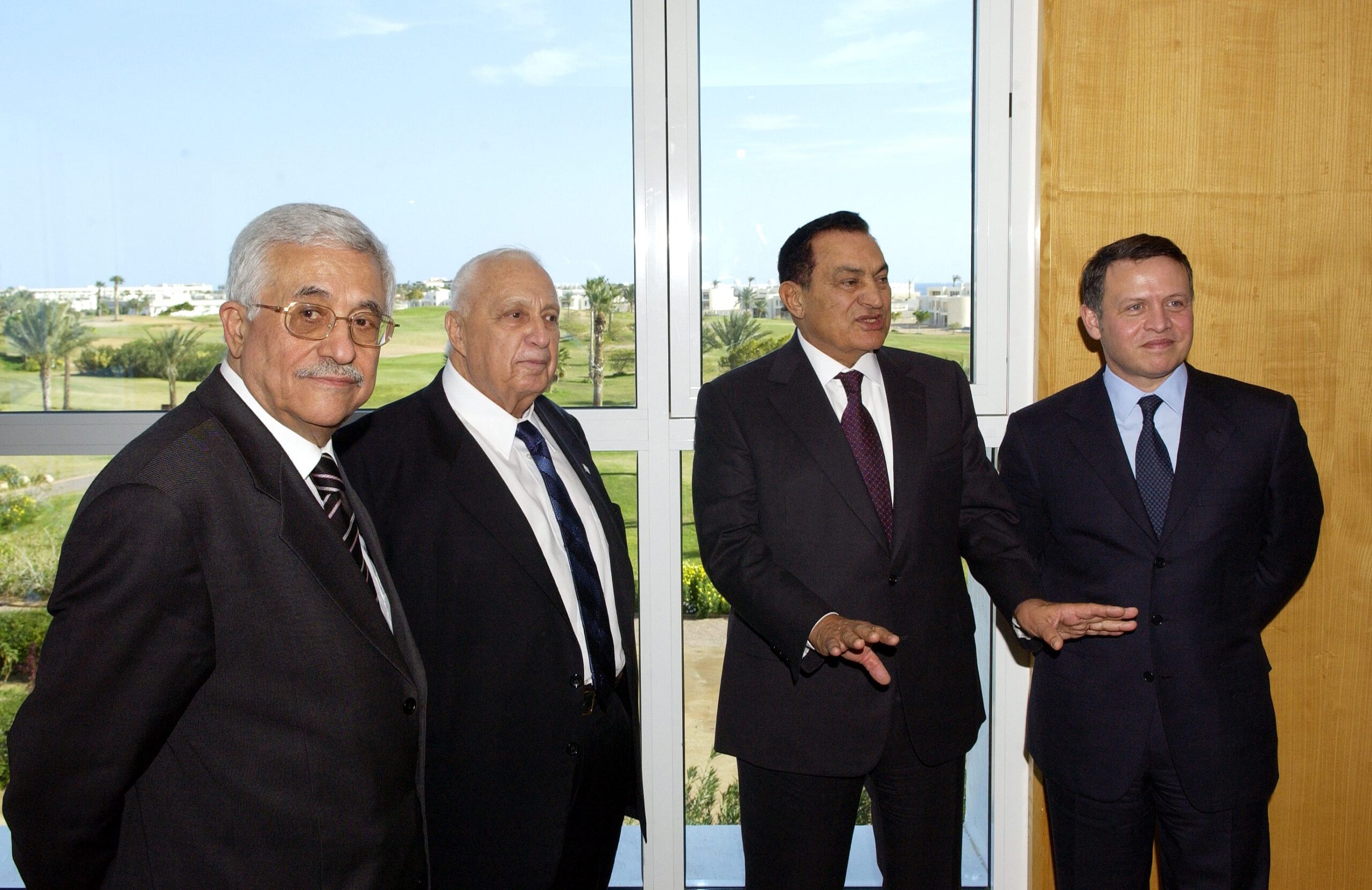
February 8, 2005
Israeli Prime Minster Ariel Sharon, Palestinian Authority President Mahmoud Abbas, Egyptian President Hosni Mubarak and Jordanian King Abdullah II met at the Egyptian resort town of Sharm el-Sheikh to work toward ending the Second Intifada.
Also known as the Al-Aqsa Intifada, the Second Intifada is a deadly Palestinian uprising in its fifth year. Palestinians blame the violence on the provocation of a visit by Sharon, then the Knesset’s opposition leader, to the Temple Mount in September 2000. Rioting in the Old City that fall led to deadly altercations and terrorism. Palestinians carried out many suicide bombings against Israeli civilians, and the Israeli military responded with crackdowns in the West Bank and Gaza Strip. The United States and European Union failed in repeated attempts to broker a cease-fire, and the killing stifled peace efforts such as the Arab League-approved Saudi peace initiative in 2002 and the Roadmap for Peace presented by the Quartet in 2003.
All sides make concessions at Sharm el-Sheikh to end the bloodshed. Sharon agrees to release 900 Palestinian prisoners and end military operations in the West Bank and Gaza. Abbas agrees to call for an end to violent attacks on Israelis. Egypt and Jordan agree to return their ambassadors to Israel. The summit ends with declarations from Sharon and Abbas that the Second Intifada is over, although sporadic violence continues.
“We have an opportunity to break off from the path of blood which has been forced on us over the past four years,” Sharon says at the end of the summit. “We have an opportunity to start on a new path. For the first time in a long time, there exists in our region hope for a better future for our children and grandchildren.”
The death toll for the Second Intifada is more than 1,000 Israelis and around 4,000 Palestinians.
